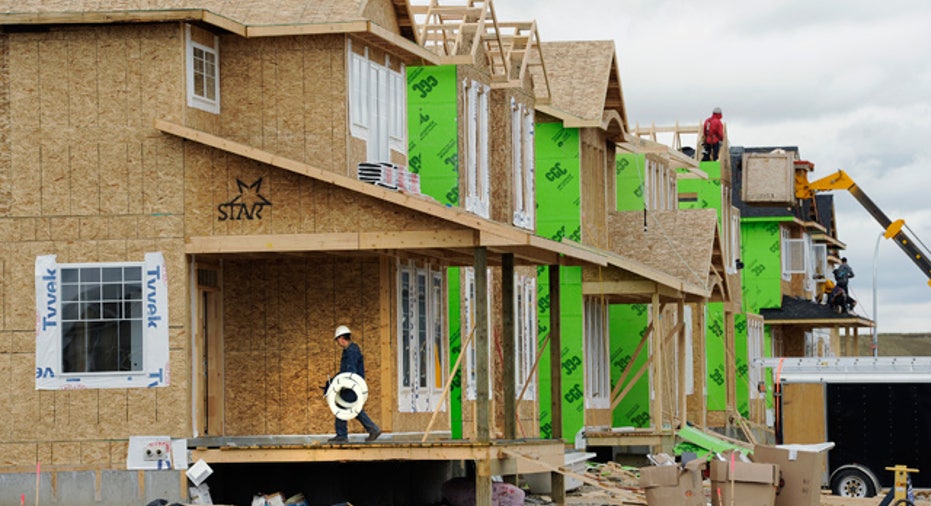Deciding to Buy a New or Used Home

Some homebuyers will take nothing less than a brand-new home with an untouched bathtub. Others want a home with character in an established neighborhood. Personal preferences aside, there are pros and cons to each option -- buying a newly built home or buying a resale -- as well as financial implications to the choice.
New Home Advantages
Rochelle Fitzgerald, a sales associate with Coldwell Banker Residential Brokerage's Rockwall office near Dallas, says, "There's no question that some people prefer that 'new-home smell' and the idea that no one else's feet have been on the carpet. On top of that, many people like to personalize their home by picking out everything from the beginning."
Some buyers focus on the more practical aspect of buying a new home because it will typically require less maintenance.
"It's very important to some buyers to have everything new, plus they have the peace of mind that comes along with the builder's warranty," says Dan Kruse, broker/owner of Century 21 Affiliated in Madison, Wis.
On the financial side, builders, particularly in a slow real estate market, offer plenty of incentives to buyers.
"In a seller's market, new homebuyers will often spend as much as 10% or more above the purchase price for optional features," says Jeff Ristine, broker/owner of Weichert, Realtors: Kingsland Properties near Chicago. "Now many builders are offering free options as an incentive to buyers such as a finished basement and an upgraded kitchen. Builders are tailoring their incentives to specific buyers, so some will throw in things like initiation fees for a country club membership."
New Homes Disadvantages
In spite of the added builder incentives, real estate experts say new homes are typically more expensive than existing homes.
"Traditionally, new homes are more expensive because they are being built from the ground up," Kruse says. "In recent years, some new homes have come down somewhat in cost because the builders have been hurt so badly by the downturn in the housing market. For the most part, though, builders try to keep price integrity and will offer closing cost assistance or upgrades rather than lower the base price."
Upgrades and closing cost funds are typically tied to the buyer using a builder-designated lender and title company.
"I would caution buyers, at least in our market in the Chicago area, to be careful buying a new home because builders are competing against foreclosures and it could be long time before a new home will increase in value," Ristine says. "Even with builder incentives, you are usually paying a premium for buying a new home, so you need to hold onto it for five years or more to build any equity."
Fitzgerald says buyers of new homes should expect to own longer than buyers of existing homes because of differences in the rate of price appreciation.
"In a new home community, if you need to sell within a year or two, you are competing against the other homes that are still being built and can be customized," Fitzgerald says. "Buyers will choose a brand-new home rather than a 1-year-old home, especially if the builder can offer incentives that a regular seller cannot."
One other downside is the potential for living in the midst of a construction site for several years, particularly if the builder has slowed development due to the recession.
When to Buy a New Home
Realtors agree that the best values for a new home are available when the development is nearly complete.
"In years past, buyers wanted to get in early to take advantage of preconstruction pricing and a better location within the community, but now buyers want to get in late, so if you have to sell you won't be competing with newer homes in the development," says Kruse.
Ristine says buyers should be cautious about buying before a community is near completion, because some builders are so financially strapped that they cannot complete their developments.
Existing-Home Advantages
"The biggest advantage of existing homes is the maturity of the community," Kruse says. Buyers can take a historical perspective and look at how well the homes have held their value. Plus, buyers willing to purchase a fixer-upper can more easily increase the value of their property than someone with a new home.
Fitzgerald says that buying in an established community allows homeowners to know more about the schools and neighbors before they buy.
Long-Term Value in New and Existing Homes
For most homebuyers today, the biggest concern is whether the property will hold its value. Fitzgerald says, "In 10 years, a new home purchased today is likely to have more value simply because you own a newer home designed to meet today's standards. A new community will have newer amenities, too, including schools and shopping areas."
Kruse and Ristine believe long-term value depends more on location than the age of the property.
"Value depends on where a home is located and how well the home has been maintained," says Ristine. "People do like new things, but if a home has been upgraded with a new kitchen and bath it can compete very well with a new home."
Ultimately, the decision to buy a new or existing home comes down to which a buyer values more: a maintenance-free new home or a mature neighborhood.



















